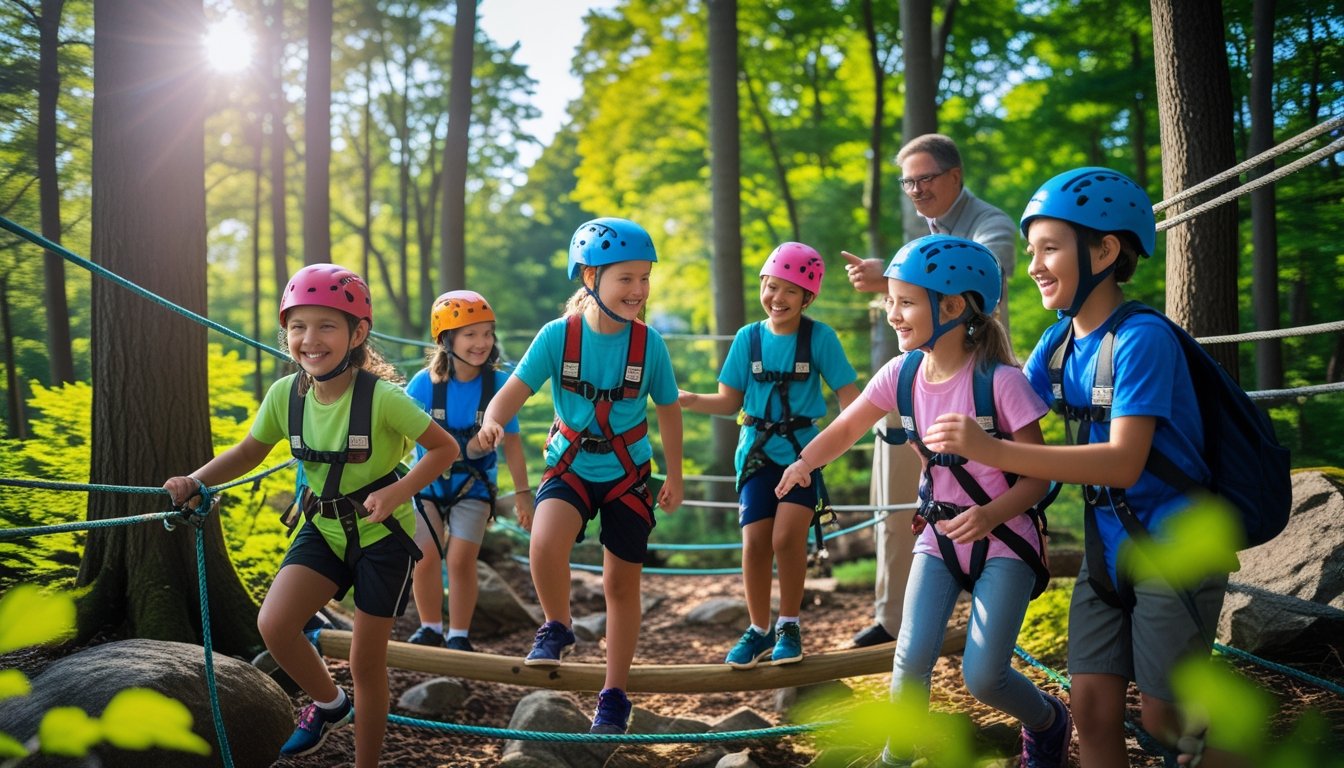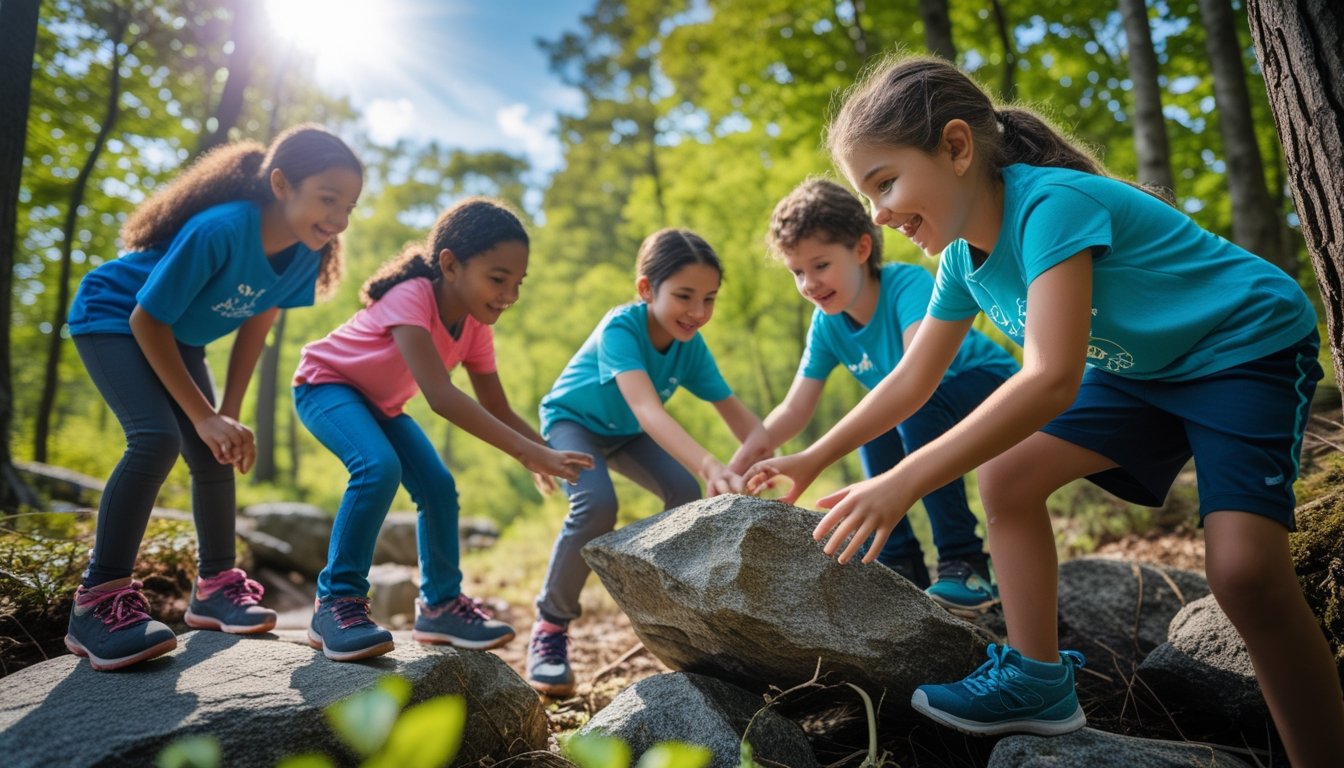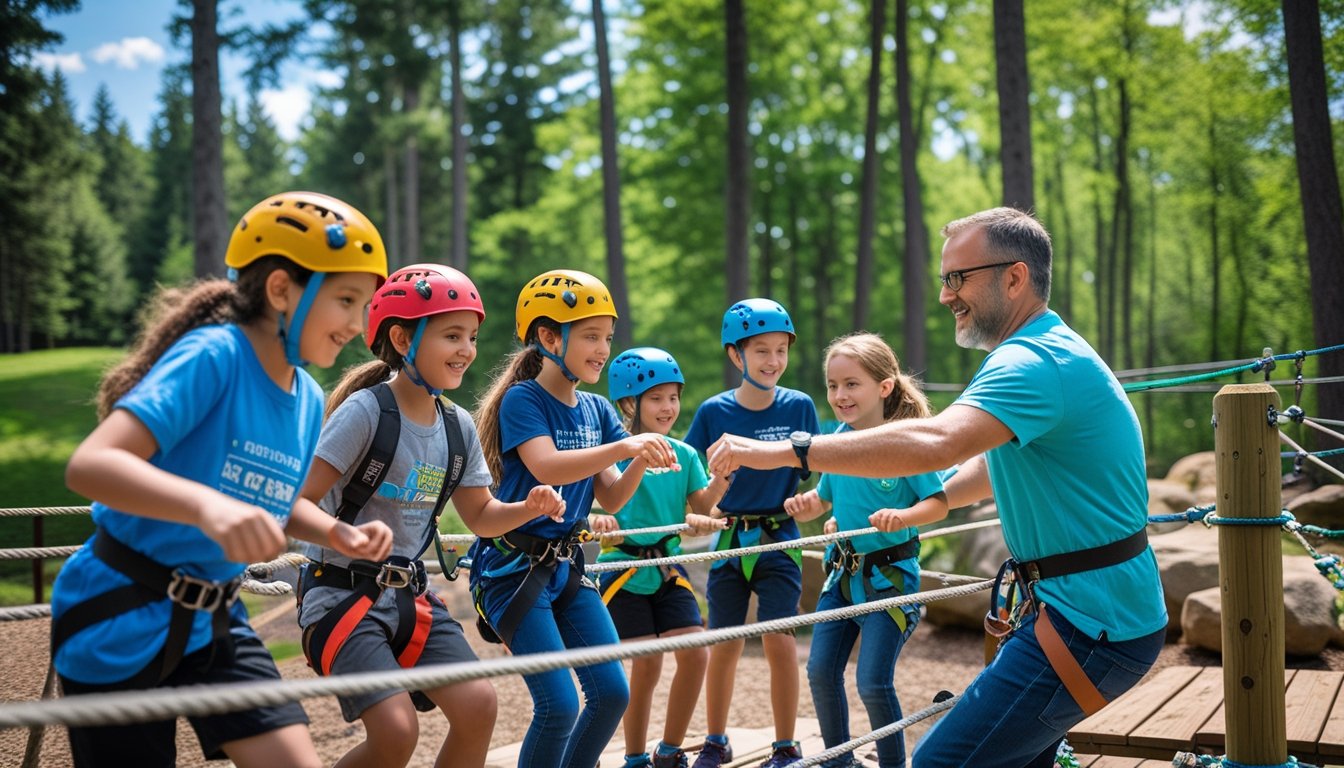Late updated: 18 Nov 2025 09:11
Written by:
Exploring Benefits Of Adventure-Based Learning For Kids: Enhancing Growth And Skills
Adventure-Based Learning (ABL) offers a refreshing approach to education for children. As traditional classroom settings are complemented by outdoor activities and real-world challenges, children can break away from routine learning and immerse themselves in experiences that develop critical skills. These experiences are instrumental in fostering self-confidence, teamwork, and resilience, which are essential for personal growth.

Children benefit greatly from adventure-focused activities as they navigate through challenges that promote physical, emotional, and social development. Whether it's engaging in outdoor exploration or taking part in structured team-based tasks, the opportunities for learning are vast. By incorporating elements of natural surroundings, these activities also promote a healthy lifestyle.
With adventure-based learning, students are not just building academic knowledge but also life skills that will serve them well into adulthood. It's about preparing them for a world beyond textbooks, using nature and creativity as powerful tools for learning and growth.
Key Takeaways
- Adventure-Based Learning develops essential life skills in children.
- Outdoor activities improve physical, emotional, and social growth.
- Adventure-focused learning prepares children for real-world experiences.
Core Benefits of Adventure-Based Learning for Children

Adventure-based learning offers children an engaging and instructive environment that contributes to their development. By stepping outside traditional classroom settings, they gain valuable life skills such as resilience, teamwork, and self-confidence, which are essential for personal growth.
Building Resilience and Adaptability
Adventure-based learning cultivates resilience and adaptability in children. As they engage in activities that push them beyond their comfort zones, they learn to face challenges head-on. Overcoming such hurdles helps them understand that failure is a part of learning, encouraging persistence.
Adaptability is fostered through exposure to diverse environments and scenarios. Children learn to adjust their strategies and approaches in real-time, leading to enhanced problem-solving skills. This ability to adapt is crucial for personal development and equips them with the tools needed for future success.
Enhancing Teamwork and Empathy
Teamwork and empathy are at the core of adventure-based learning experiences. Many activities are designed to be tackled in groups, requiring children to cooperate, communicate, and support each other. This collaborative environment not only builds team spirit but also helps them develop empathy as they learn to consider the perspectives and feelings of others.
Children learn the importance of listening, compromise, and collective decision-making. These experiences enhance social skills and encourage the development of meaningful relationships, fostering a sense of community and mutual respect.
Boosting Confidence and Self-Esteem
As children accomplish challenging tasks, their confidence and self-esteem naturally increase. Adventure-based learning provides opportunities for them to realise their potential, instilling a sense of achievement and self-worth. Successful navigation of new activities reinforces the belief that they can handle unfamiliar situations and develop new skills.
This boost in confidence goes beyond the immediate learning experience. It influences their approach to other areas of life, encouraging them to take on challenges with a positive mindset. With increased self-esteem, children are more likely to embrace personal growth and pursue their ambitions with determination.
Developing Life Skills Through Outdoor Activities
Outdoor activities offer unique opportunities for children to gain valuable life skills in a natural setting. Through structured programmes like adventure learning and experiential education, children can enhance their ability to solve problems, make decisions, and understand sustainability.
Fostering Problem-Solving and Critical Thinking
Outdoor activities such as rock climbing, hiking, and canoeing create situations where children must think on their feet. When climbing, kids learn to assess the best route, considering both their agility and safety. Kayaking and canoeing require navigating natural waterways, demanding split-second decision-making and strategic planning. These adventure-based scenarios boost problem-solving abilities and encourage critical thinking. By working in teams to overcome obstacle courses, children can share ideas, evaluate possibilities, and settle on the most effective solutions.
Cultivating Decision-Making and Leadership Skills
In the realm of outdoor adventure, leadership naturally emerges. Activities like group hiking or camping necessitate organisation and role distribution. Children learn to take charge, delegate tasks, and guide peers through complex environments. Through these experiences, they gain confidence in their decision-making abilities, learning to weigh risks and foresee outcomes. Leadership is further developed in experiential learning settings, where decisions about pacing, safety, and resource management come into play, fostering a sense of responsibility and accountability.
Promoting Environmental Awareness and Sustainability
Nature itself becomes a powerful teacher, highlighting the importance of environmental education. By engaging in outdoor activities, children gain a tangible understanding of ecosystems and the need for sustainability. Participating in activities such as nature walks or environmental clean-ups fosters a deeper connection to the environment. These experiences underscore the impact of human activities on nature. Learning about wildlife, plant conservation, and sustainable practices instils a sense of stewardship. Consequently, children become mindful of their actions, promoting eco-friendly behaviours that extend beyond their outdoor adventures.
Frequently Asked Questions

Adventure-based learning can transform a child's development in several ways. From enhancing problem-solving skills to boosting physical health, the benefits are extensive. Let's address some common questions.
How does adventure-based learning impact children’s problem-solving abilities?
Adventure-based learning presents children with real-world challenges that require innovative solutions. Through activities like navigating obstacle courses or solving group puzzles, kids practise identifying problems and thinking critically about possible solutions. This practical approach hones their ability to tackle challenges head-on with confidence and creativity.
In what ways does participation in adventure-based learning programmes foster teamwork in young people?
Engaging in adventure-based activities often involves collaborative tasks, promoting a sense of belonging and mutual reliance. Whether it's building a raft or team sports, children must communicate effectively and work together towards a common goal. This experience enhances their interpersonal skills and understanding of the importance of teamwork.
What role does adventure-based learning play in enhancing a child's self-esteem and confidence?
Facing and overcoming challenges in a supportive environment allows children to build self-esteem. As they successfully complete tasks that require courage and perseverance, they gain confidence in their abilities. This boost in self-worth contributes positively to their overall personal development.
How do outdoor educational adventures contribute to a child's physical health and well-being?
Adventure-based learning often takes place outdoors, involving physical activities that promote health and fitness. Hiking, climbing, and similar activities stimulate cardiovascular health and improve strength. Moreover, being in nature reduces stress, enhancing both physical well-being and mental relaxation.
Can adventure-based learning influence a child's emotional intelligence and social skills, and if so, how?
Yes, adventure-based learning fosters emotional intelligence by placing children in scenarios that require empathy and emotional regulation. Working closely with peers, they learn to read social cues and navigate complex emotional landscapes. This nurtures their ability to relate to others and manage their emotions effectively.
What are the key components of an effective adventure-based learning curriculum for children?
An effective curriculum should include diverse activities that promote learning through experience. Key components include tasks that challenge cognitive and physical skills, opportunities for teamwork, and reflection sessions to process experiences. It's crucial to provide a variety of scenarios to cater to different interests and learning styles.
